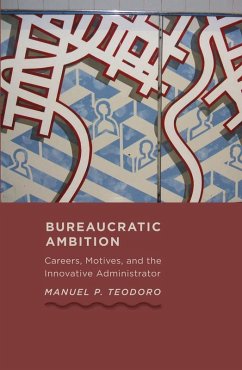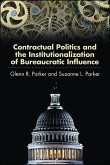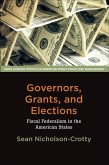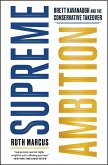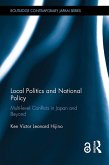Winner of the Herbert A. Simon Book Award of the American Political Science Association, American Society for Public Administration Book Award of the American Society for Public AdministrationPolitical scientists and public administration scholars have long recognized that innovation in public agencies is contingent on entrepreneurial bureaucratic executives. But unlike their commercial counterparts, public administration "e;entrepreneurs"e; do not profit from their innovations. What motivates enterprising public executives? How are they created? Manuel P. Teodoro's theory of bureaucratic executive ambition explains why pioneering leaders aren not the result of serendipity, but rather arise out of predictable institutional design.Teodoro explains the systems that foster or frustrate entrepreneurship among public executives. Through case studies and quantitative analysis of original data, he shows how psychological motives and career opportunities shape administrators' decisions, and he reveals the consequences these choices have for innovation and democratic governance. Tracing the career paths and political behavior of agency executives, Teodoro finds that, when advancement involves moving across agencies, ambitious bureaucrats have strong incentives for entrepreneurship. Where career advancement occurs vertically within a single organization, ambitious bureaucrats have less incentive for innovation, but perhaps greater accountability. This research introduces valuable empirical methods and has already generated additional studies.A powerful argument for the art of the possible, Bureaucratic Ambition advances a flexible theory of politics and public administration. Its lessons will enrich debate among scholars and inform policymakers and career administrators.
Dieser Download kann aus rechtlichen Gründen nur mit Rechnungsadresse in A, B, BG, CY, CZ, D, DK, EW, E, FIN, F, GR, HR, H, IRL, I, LT, L, LR, M, NL, PL, P, R, S, SLO, SK ausgeliefert werden.

